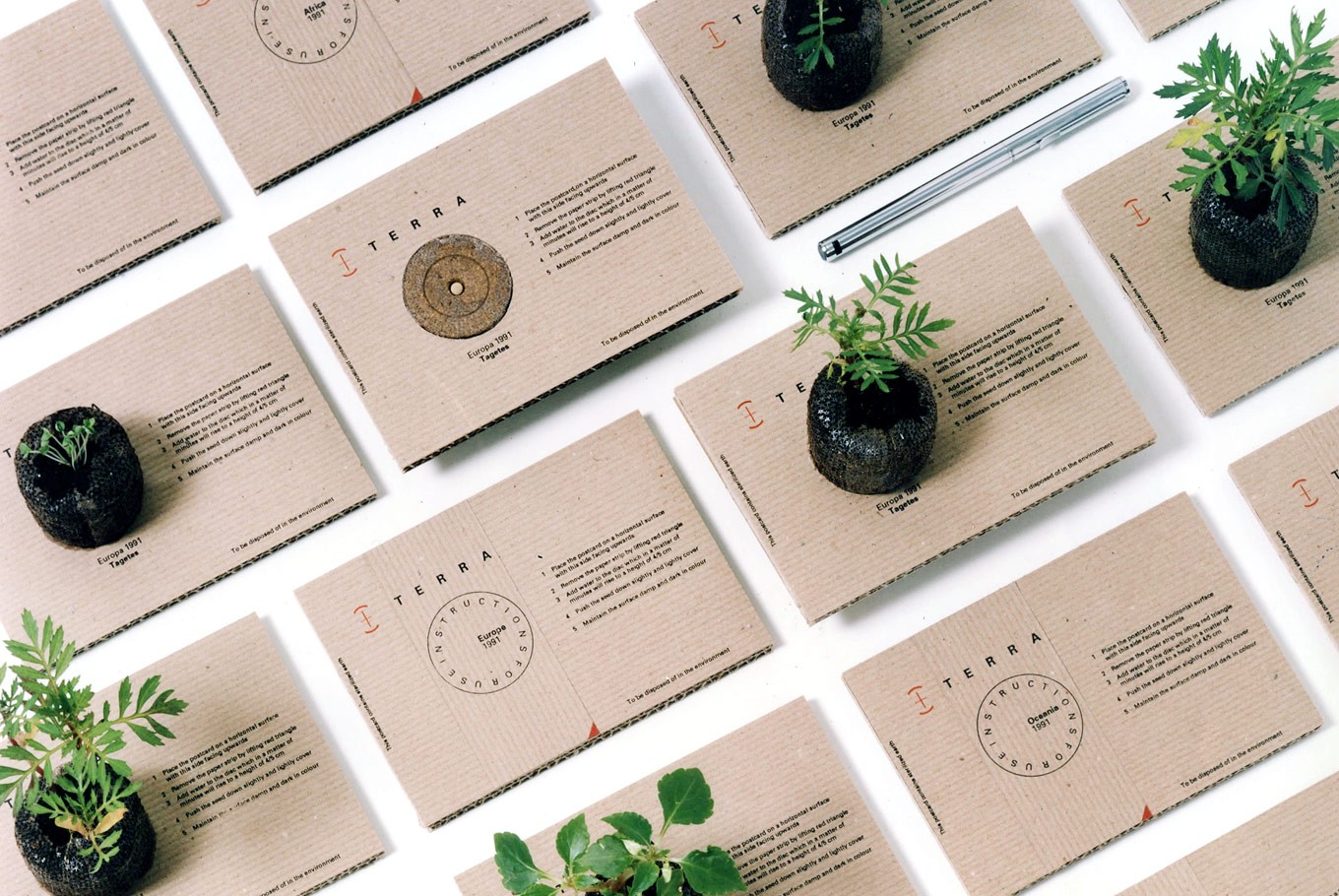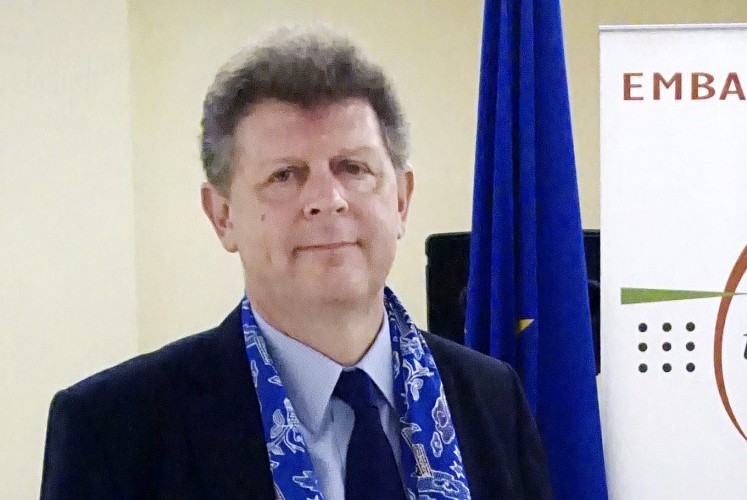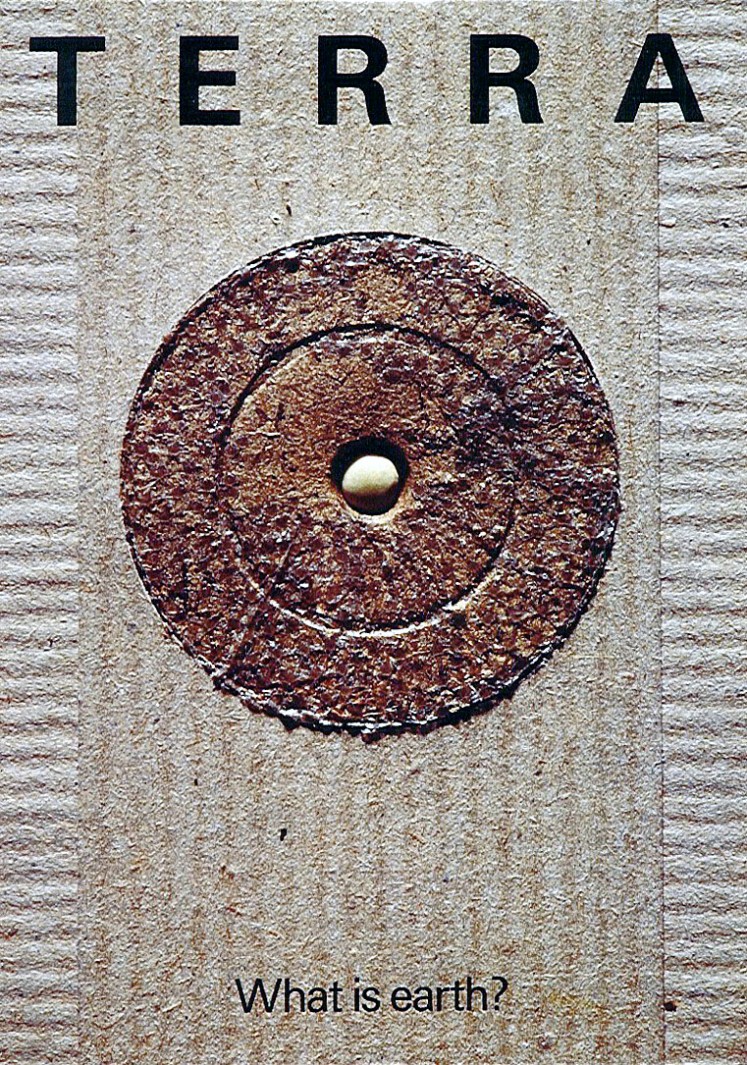Popular Reads
Top Results
Can't find what you're looking for?
View all search resultsPopular Reads
Top Results
Can't find what you're looking for?
View all search resultsAlessandro Colombo's: Designs against destruction
Change text size
Gift Premium Articles
to Anyone
Italian architect Alessandro Colombo pulls a postcard out of his pocket whenever people ask him what his most iconic work is.
The totally recyclable postcard is made from cardboard and contains a pellet of dehydrated peat in which a seed is embedded. One only has to add water to give life to a plant.
“It is very cheap but with a very important message that is the life on earth,” Colombo, who is also the Italian ambassador of design to Indonesia, said recently at the Italian Cultural Institute in Jakarta.
The postcard is a result of a project called “Earth: Instruction for Use”, which won the Mayor of Osaka City Prize back in 1990, only a few years after Colombo graduated from the Polytechnic University of Milan.
It was the start of a fruitful career during which Colombo worked on numerous projects in the fields of architecture and design.
Alessandro Colombo (JP/Frans Snackers)In the postcard, one can feel the influence of Marco Zanuso, who was Colombo’s university professor and served as his mentor. Colombo agrees with his vision of trying to find solutions that are in between technology, art and architecture.
In that respect he feels that a collaboration between Italy and Indonesia can be very fruitful in trying to combat problems that both countries are now facing, even though the countries themselves are very different. One of these is pollution, especially in places that are very popular with tourists — places like Milan and Venice share similarities with Bali and Lombok.
“One of the problems is the garbage. We have seen it in Venice or here in Bali. Garbage is a problem. But people are producing garbage, when? When they are getting around the city without scope, without an idea,” Colombo said.
He argues that the destruction of the landscape occurs when people have nothing to do, and lack a certain respect for their environment.
For a solution to this problem, Colombo argues for an old Latin concept, Otium. The term refers to leisure time that you can relax and enjoy, but during which you remain mentally active. One of the means to achieve this is by keeping people engaged when they are visiting a tourist destination.
A recyclable postcard designed by Alessandro Colombo (terrapostcard.com/File)He gives the example of an installation he designed during a large exposition in Milan, which saw thousands of people visit the city. In the installation, people could stand and watch a bird’s-eye view of the city on screens all around them. Colombo said that because of diversions like this, the city suffered very little damage.
However, Colombo does admit this is a long-term process because it requires a culture change that needs the support of not only the government but all levels of society.
“You can’t oblige people to do something. You need to teach people how to manage their life in the city.”
Colombo himself hopes to be engaged with a project in Indonesia in the near future. He is very interested in the people and how they go about their daily lives.
“How people move, talk, is related, is something different. I think they have their own way,”
“They are always smiling, all is going smooth it seems to me. Also the traffic, it is very bad but it is going smooth. Nobody is angry.”
However, for now Colombo returns to Milan where his next appointment is the Salone Del Mobile in April.
If the seed for a project in Indonesia was not planted during his first visit, he could always send a postcard to sort that out.
***
Frans Snackers is an intern at The Jakarta Post













